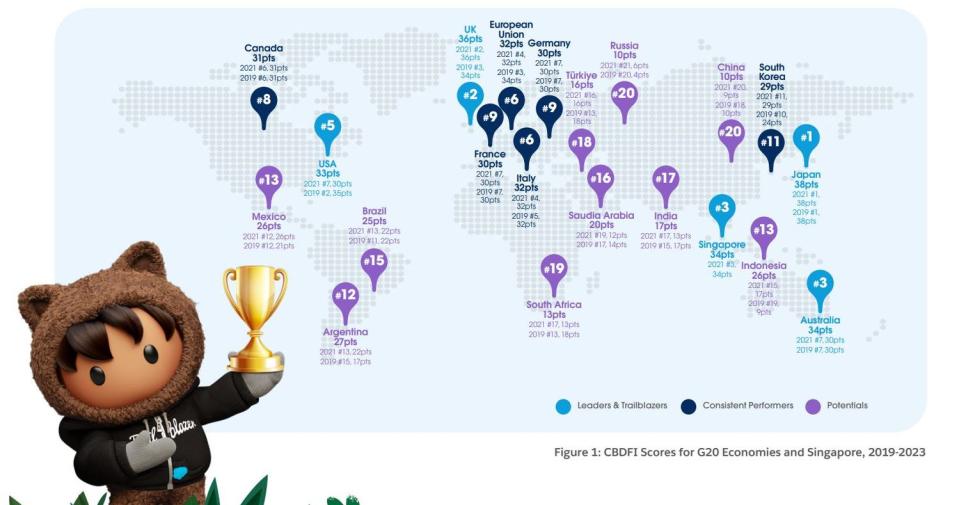Singapore ranked third on openness to cross-border data flows

Recognising the benefits of cross-border data flows, Asean is increasingly embracing open data transfer policies: Salesforce
Singapore came in third among the G20 economies in terms of enabling easy cross-border data flows, behind UK and Japan, according to Salesforce’s Data Beyond Borders 3.0 report.
Open cross-border data flows are crucial to the growth of digital economies as it helps increase competition and enhance opportunities for businesses and communities. Case in point: Cross-border e-commerce has had a 45-fold increase throughout the last decade, reaching an estimated $2.7 trillion in 2023.

Photo: Salesforce
Recognising the benefits of cross-border data flows, Asean economies are increasingly embracing open data transfer policies. For instance, Indonesia introduced the Data Protection Law last year to provide clear mechanisms for cross-border data transfers and clarity over permissible types of data to be transferred.
Moreover, regional agreements such as The ASEAN Digital Economy Framework Agreement (DEFA) and the Indo-Pacific Economic Framework for Prosperity (IPEF) are being developed to facilitate cross-border data flows.
To help countries improve their cross-border data transfers and optimise for economic growth, the Salesforce report has provided a list of key policy recommendations:
Developing global standards by harmonising privacy laws and aligning on principles for government access to data in the cloud.
Expanding digital economy agreements, such as free trade agreements, to include cross-border data provisions.
Making trusted data-sharing frameworks the default.
Accelerating the digitisation of businesses and government services.
Clearly defining data sovereignty in a way that is global and interoperable, along with standards to manage it.
“Cross-border data transfers drive economic success. In Asean, economies like Singapore are reaping the benefits with its strong cross-border data policies and conducive regulatory environment. This sets the benchmark for other Asean nations. It is promising to see economies like Indonesia moving in the right trajectory, with the introduction of new laws that promote cross-border data flows. Supporting the movement of data across borders unlocks the region’s potential and competitiveness, and will help to drive the region’s overall growth,” says Boon Poh Mok, director of Government Affairs & Public Policy for Salesforce Southeast Asia & Greater China.
See Also:
Click here to stay updated with the Latest Business & Investment News in Singapore
Singapore Institute of Technology to establish "living labs" with Oracle and Salesforce
More working Singaporeans excited about generative AI than worried: Salesforce
Personalised experiences drive loyalty for spend-conscious consumers in Singapore
Get in-depth insights from our expert contributors, and dive into financial and economic trends

 Yahoo Finance
Yahoo Finance 